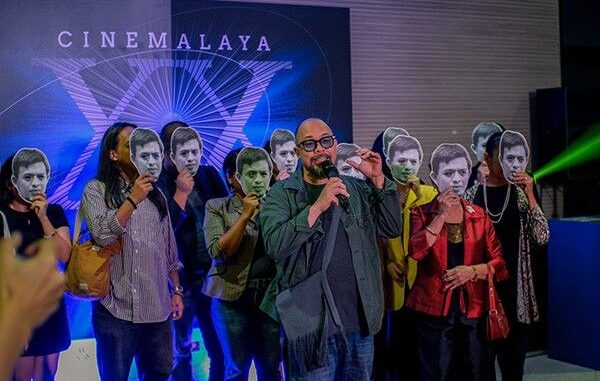
MANILA, Philippines — The Directors’ Guild of the Philippines, Inc. (DGPI) condemned the recent actions of the Movie and Television Review and Classification Board (MTRCB) for initially issuing X ratings to the documentary “Alipato at Muog” and holiday film “Dear Satan.”
The organization released a statement signed by its president and filmmaker Mark Meily “unequivocally condemning” the MTRCB’s initial X ratings for the two films, calling it “an alarming overreach of its mandate, reflecting an unsettling position of political and religious biases on creative works.”
On the matter regarding JL Burgos’ “Alipato at Muog,” a documentary about the 2007 disappearance of the director’s brother Jonas, the DGPI noted it was fiction or sensationalism but a poignant recounting of real events.
“The MTRCB’s initial decision to classify this documentary as X, under the pretext of undermining government authority, is both a gross misunderstanding and an unacceptable distortion of the board’s purpose,” the DGPI said.
The initial X rating not only misrepresents the film’s nature but also undermines the essential role of documentaries in fostering public discourse and accountability, it added.
The DGPI also found the board’s lengthy reclassification of “Alipato at Muog” to R-16 a negative reflection on the subjectivity and inconsistency in the board’s decision-making processes.
As for “Dear Satan,” a movie starring Paolo Contis as the devil who mistakenly receives a girl’s Christmas wish intended for Santa Claus, the organization found the film’s X rating “an evident overreach.”
The group pointed out the fictional film explores themes of redemption and transformation by showing Contis’ character learning compassion and doing good deeds.
The movie doesn’t glorify evil, the DGPI continued, as it instead “presents a narrative that challenges conventional depictions of antagonists.”
“The MTRCB’s decision, rooted in a belief that a depiction of Satan as a character capable of good is inherently harmful, disregards the long traditiion of literature and film where such themes have been explored without adverse effects,” the DGPI said.
As examples, the DGPI pointed out that Western projects like “Hellboy,” “Lucifer,” and “Little Nicky” were all received positively regardless of their religious or moral implications.
The DGPI finished its statement calling on the MTRCB to “adhere strictly to its mandate of providing fair and unbiased film classifications, free from personal, political, or religious prejudices,” that the board should evaluate content based on content and merit over subjective moral judgements.
“We urge the MTRCB to review its procedures and ensure that future ratings are based on transparent, objective criteria that respect the diversity of artistic expressions,” it ended. “The DGPI remains committed to advocating for the rights of filmmakers and the integrity of the creative process.”
RELATED: Cinemalaya docu ‘Alipato at Muog’ gets R-16 — film director


Be the first to comment